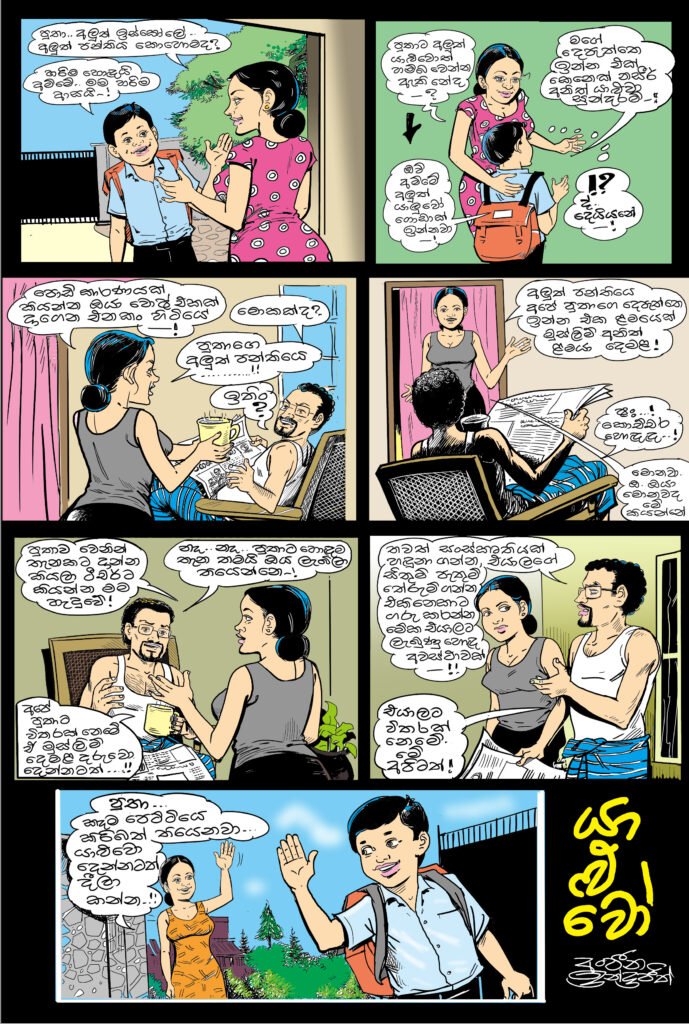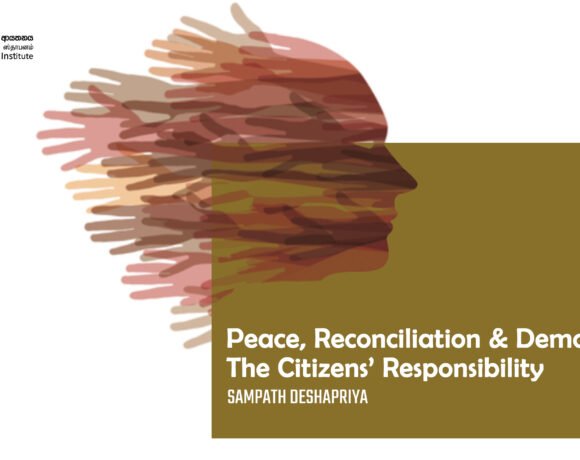
Child Mind Affected by Communal Violence
Sampath Deshapriya

Society has started to discuss the crisis the younger generation is facing today due to Covid-19. The problems faced by the children include limited mobility, closure of schools, and stress caused by online education. Latest reports indicate that child abuse has increased by 40% during the pandemic. 20% of the boys and 10% of the girls in Sri Lanka are subjected to sexual harassment. Is child abuse only sexual exploitation? No. Responsible authorities do not appear to conduct surveys on the mental abuse of children. Security forces are involved in Covid-19 control work. Soldiers on military motorcycles with lights on in the broad daylight patrol in cities in both north and south. The people who violate quarantine regulations are seized and taken away. What is the message delivered to the children by all these happenings? What can be the answers given by the parents for the questions raised by a Tamil or Muslim toddler?
It is no secret that some racist teachers in Sinhala Buddhist, Tamil, and Muslim schools inculcate extreme ideas to the children. Security forces engage in suppressing extremist activities in certain parts of the Northern Province. Some personal clashes in southern Sri Lanka were interpreted as communal clashes, and the Muslims were attacked. Muslim extremists launched the series of Easter Sunday attacks killing and injuring hundreds of people. Children underwent physical as well as mental distress due to these incidents. However, they are not in the dialogue of the mainstream. The children who are brought up amidst this chaotic situation will be tomorrow’s citizens. What will be their mentality? When we discuss this, we have to consider the challenges children face locally and internationally and the child rights.
The United Nations Convention on the Rights of the Child (UNCRC) sets out the civil, political, economic, social, and cultural rights of every child, regardless of their race, religion or abilities. The child has a right to rise for freedom. Every child has a name and a national identity from birth. They have the right to know their parents and to receive love from them. If someone prevents it, the child has a right to resist. We have to respect the right of the child to express an opinion. The children of the minority communities have rights for their culture, religion, and language. During conflicts, the child has the right to be safe from wars and clashes. Enlisting children is also against the law. Children must be provided with state security. The government is responsible for creating a torture-free and caring environment for the children.
According to the UN Convention on the Rights of the Child, all nations are responsible for reducing the psychological impact on the child. According to UNICEF records, over 80% of the victims of war are women and children
Children of both north and south underwent anxiety caused by the 30-year war, leading to behavioural problems. The children in the countries where conflicts occur also face mental risks. No one seems to survey and evaluate the situation. Mainstream media also propagate Sinhala racism and religious extremism affecting the children further. The child created by media, society, and parents for the future is one full of hatred and not a person brought up amidst reconciliation.
According to the reports from countries in conflict like Rwanda, Mozambique and Kampuchea indicate that the children subjected to brutality have post-traumatic stress disorder (PTSD). Medical researchers have shown that Sri Lankan children also indicate signs of anxiety. Some children who faced violence in 1983 live in foreign countries now as adults have reported that they still suffer from fear.
Children who have been subjected to violence have shown learning weaknesses. The children who lived in conflict zones have shown symptoms like bedwetting, chewing fingers, and fear of the darkness. Former child soldiers have shown anger, the tendency for suicide, fear for isolation, etc. The children of the Muslims displaced from the north have indicated symptoms of depression, and some of them have been addicted to drugs as adults, as shown by surveys. All these suggest that to create a physically and mentally healthy future generation, we need a social pre-condition free from all forms of violence based on race and religion.
வன்முறைகளுக்குள் வாழும் குழந்தைகள் சமூகத்திற்கு சொல்லும் சில செய்திகள்!
වාර්ගික ප්රචන්ඩත්වයෙන් බැට කන ළමා මනස






